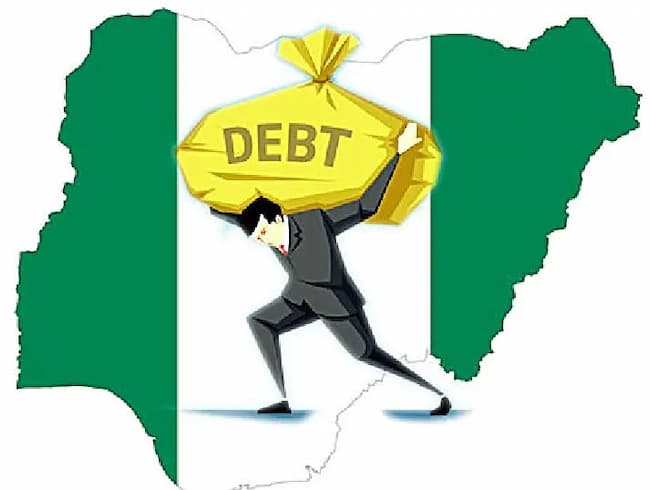Amid concerns about the rising expenses of servicing external debt, the Federal Government borrowed a total of $4.95 billion in loans from the World Bank in the last 12 months, bringing the total amount of public debt to N101 trillion.
The Debt Management Office estimates that as of December 2023, the country’s national debt was around N97 trillion. This occurred as the government was still anticipating a new $4.4 billion loan approval from the Africa Development Bank and the international lender for the upcoming year.
The bank had approved funding for six projects: $750 million for financing the power industry; $500 million for women’s empowerment; $700 million for education of girls; $750 million for renewable energy solutions; $750 million for resource mobilization reforms; and $1.5 billion for economic stabilisation reforms.
According to research, the World Bank board approved a $750 million loan on June 9, 2023, to support Nigeria’s electricity industry. According to the bank, the loan will provide extra funding for the performance-based rehabilitation program for the power industry.
Additionally, it declared that a $500 million loan would be approved on June 27, 2023, to support Nigeria’s efforts to empower women. Under the present management, this was the bank’s second loan approval. It supplied the Nigeria for Women Program with increased funding.
The World Bank authorized a $700 million loan in September 2023 to support teenage girls’ empowerment and access to education in Nigeria. The loan was given in order to continue the project known as the “Adolescent Girls Initiative for Learning and Empowerment.” Its goal was to promote accessibility in secondary education.
While $750m was authorised on December 14, 2023, for the Distributed Access through Renewable Energy Scale-up project in Nigeria, the project aims to provide over 17.5 million Nigerians with better access to electricity via distributed renewable energy solutions and tackle the electricity access deficit.
The latest was a sum of $2.25bn comprising $1.5bn for reforms on Economic Stabilisation to Enable Transformation Development Policy Financing Programme. It is meant to increase fiscal oil revenues to 2.7 per cent by 2025, boost non-oil fiscal revenues, expand social safety nets to assist 67 million vulnerable Nigerians and raise the import value of previously banned products. $750m was also apportioned to enhance non-oil revenues and protect oil and gas revenue.
Meanwhile, the government is expecting about $4.4bn in new loans from the World Bank and the AfDB. The government is pursuing a $500m loan to address the need for better connectivity in rural road infrastructure and agricultural marketing, a $750m loan if it reintroduces previously suspended telecom tax and other fiscal measures, and a $500m to address the challenges faced by Internally Displaced Persons nationwide. The government is also expecting about $2.7bn economic and budget support loan from the African Development Bank.
The AfDB President Akinwumi Adesina, in an interview with journalists in March said its Board of Directors approved $134m for Nigeria to implement an emergency food production plan, while talks are also ongoing for a $1.7bn economic and budget support loan as well as the launch of a $1bn agro-industrial processes in 28 states.
The World Bank, a prominent international financial institution dedicated to reducing global poverty provides loans and grants to developing countries for a wide range of projects, including infrastructure development, education, healthcare, and environmental sustainability.
However, for many Nigerians, long years of infrastructure decay and increased unemployment have triggered an increased feeling of bitterness whenever they hear the government’s intention to borrow with past borrowings is not justifiable.
Nigeria has been a top recipient of fresh loans from multilateral lenders, borrowing $2.7bn in 2023 from about $2.9bn released to the country in 2022.
Last week, the Bretton Woods Institution said its technical advisory and financing to support economic growth in Nigeria currently stands at over US$15bn affirming data from the external debt stock report of the Debt Management Office shows that Nigeria owes the World Bank a total of $15.45bn as of December 31, 2023.
President Bola Tinubu had expressed his resolute commitment to breaking the vicious cycle of overreliance on borrowing for public spending, and the resulting burden of debt servicing it places on the management of Nigeria’s limited government revenueHoweververr ver the president may not have matched his words with actions as they have sought to obtain credit facilities from both domestic and external lenders.
The soaring costs of servicing foreign debt have significant implications for Nigeria’s economy. The increased debt burden could potentially divert resources away from critical sectors such as healthcare, education, and infrastructure, exacerbating socio-economic challenges.













